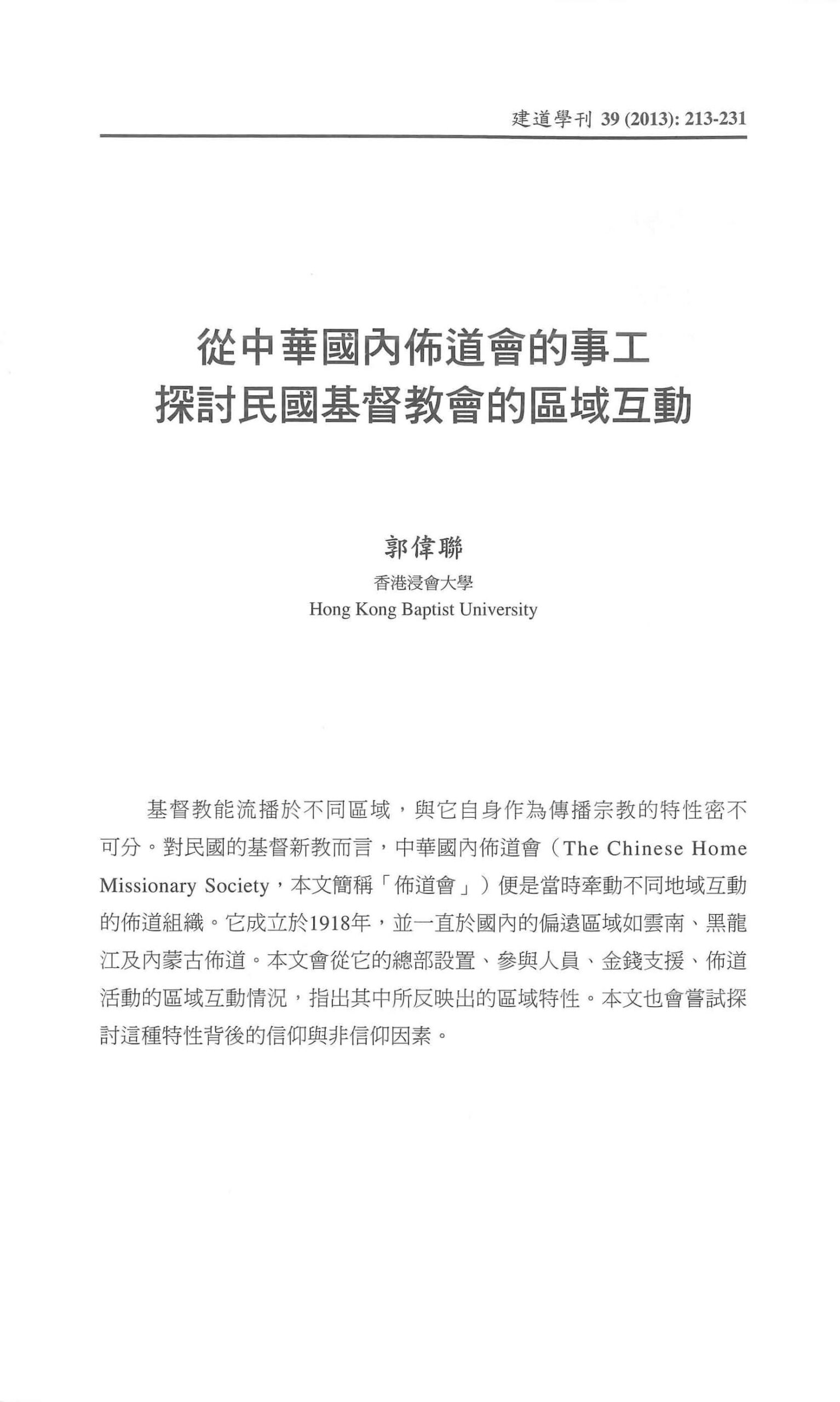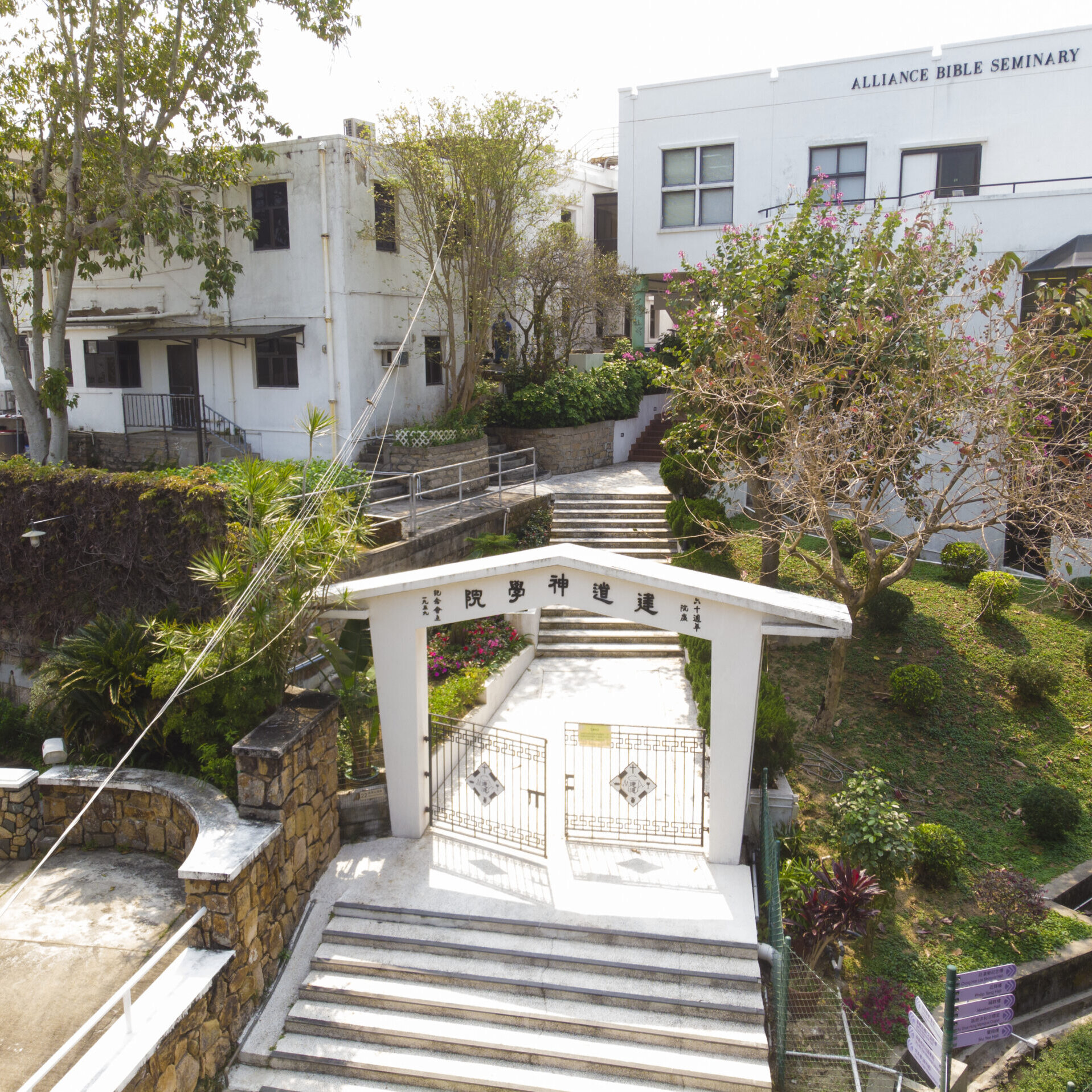從中華國內佈道會的事工探討民國基督教會的區域互動/郭偉聯
撮要
基督教作為一個傳播宗教 傳教活動是其擴展的重要手段。對民國的基督新教而言,中華國內佈道會(The Chinese Home Missionary Society,本文簡稱「佈道會」)便是當時牽動不同地域互動的佈道組織。它成立於1918年,並一直於國內的偏遠區域如雲南、黑龍江及內蒙古進行佈道。本文會從它的總部設置、參與人員、金錢支援、佈道活動的區域互動情況,指出其中所反映出的區域特性。我們從中華國內佈道會的例子中,看到民國時期華人教會如何糾合不同地域的資源,動員宣教。我們可以發現,在宣教的過程中,人才是其十分重要的因素。但有趣的是,人才的分布,又與地域的經濟及文化實力有關。
ABSTRACT
The Chinese Home Missionary Society is an indigenized missionary body of the Chinese Protestant Church in the Republican period. It had been established in 1918 by several prominent Chinese Christian leaders. It sent missionaries to Yunnan, Heilongjian, and Inner Mongolia. This paper studies the evangelical works of the society through a lens of regional interaction. It examines how the regional factors affect its location of headquarters, deployment of personnel, and financial support. It finds that the quality and supply of human resources are vital to the ministry of the Society. But, the human resources and decisions of the leaders are interestingly related with the regional socio-economical circumstances of the churches that participated in the ministry.
原載於《建道學刊》39期(2013年1月),頁213-231。
最新文章
新手牧者研究計劃(三):新手牧者的身心靈狀態 / 盧慧儀
2025 年 11 月 19 日
【教牧退休】好好理財 退而不憂 / 林本利
2025 年 10 月 1 日
【教牧退休】生前身後的管理:平安三寶 / 陸文慧
2025 年 10 月 1 日
編輯精選
[電子書]困境與抉擇:「建道研究中心30週年誌慶」跨學科研討會論文集/廖炳堂、倪步曉主編
2025 年 1 月 2 日
從梧州到長洲:建道神學院125年的挑戰與恩典 / 陳智衡
2023 年 10 月 1 日
微小教會的見證/高銘謙
2023 年 6 月 1 日







